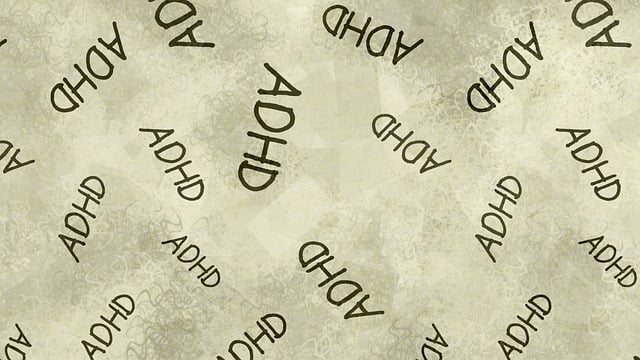Arvada Domestic Violence Therapy (ADVT) is a crucial resource for mental health crises, offering 24/7 confidential support through trained Crisis Intervention Specialists. They address immediate emotional turmoil and provide long-term strategies for managing mental illness, reducing stigma, and advocating for improved mental healthcare. ADVT's specialized services connect individuals to resources, fostering community resilience against domestic violence and promoting better mental wellness.
In today’s fast-paced world, mental health crisis hotline support services are more crucial than ever. These lifelines offer immediate assistance during moments of distress, playing a vital role in communities like Arvada, Colorado, where domestic violence therapy is readily accessible. This article explores the significance of crisis hotlines, focusing on how specialized services like Arvada Domestic Violence Therapy enhance emergency mental health support. We delve into confidentiality practices, specialist training, and easy access points to highlight why these resources are indispensable.
- Understanding the Need for Crisis Hotlines
- The Role of Arvada Domestic Violence Therapy
- How to Access Emergency Mental Health Support
- Confidentiality and Anonymity: Ensuring Trust
- Training and Preparedness for Crisis Intervention Specialists
Understanding the Need for Crisis Hotlines

In today’s fast-paced world, mental health crises can strike anyone, anywhere, at any time. It’s within this context that crisis hotline support services play a pivotal role in offering immediate assistance and guidance to individuals grappling with emotional turmoil. These hotlines are not just a resource for acute situations; they serve as a safety net for those dealing with issues like depression, anxiety, or even thoughts of self-harm. Understanding the need for these services is recognizing that mental health challenges can affect anyone, regardless of age, background, or status.
Hotlines like Arvada Domestic Violence Therapy cater to diverse needs, providing not just crisis intervention but also connecting individuals to crucial resources such as Mental Wellness Coaching Programs and development services focused on mood management and emotional healing processes. They offer a confidential, non-judgmental space where people can openly discuss their struggles and receive support from trained professionals who are equipped to handle various types of crises. This proactive approach not only saves lives but also fosters long-term mental wellness by ensuring that individuals get the help they need when they need it most.
The Role of Arvada Domestic Violence Therapy

Arvada Domestic Violence Therapy plays a pivotal role in addressing complex issues stemming from domestic violence. This specialized service not only provides immediate crisis intervention but also offers long-term support for individuals and families affected by intimate partner violence. By integrating evidence-based therapeutic practices, they help clients navigate the emotional turmoil and develop coping strategies to break free from destructive cycles.
Beyond direct therapy, Arvada Domestic Violence Therapy contributes significantly to mental illness stigma reduction efforts. They advocate for a culture of understanding and compassion, ensuring that individuals seeking support feel safe and judged less. Furthermore, their expertise in risk management planning for mental health professionals equips them to handle high-risk cases effectively while prioritizing the well-being of both clients and practitioners. Through comprehensive programs designed to enhance mental health education, they empower communities to recognize warning signs, foster healthy relationships, and promote resilience against domestic violence.
How to Access Emergency Mental Health Support

Accessing emergency mental health support is crucial for anyone experiencing a crisis. The first step is to recognize the signs and symptoms that indicate a need for immediate assistance. This could include intense feelings of distress, suicidal thoughts, or sudden changes in behavior. Once identified, individuals should reach out to dedicated hotline services that offer confidential and professional support. These hotlines are typically accessible 24/7 through phone calls, ensuring help is readily available whenever needed.
In Arvada, Domestic Violence Therapy (ADVT) provides a specialized service for those facing mental health challenges during or after traumatic experiences. Their trained professionals offer not just immediate relief but also long-term strategies for managing and overcoming mental illness. This includes resilience-building techniques and advocacy support for individuals seeking to navigate the often complex landscape of mental health services, especially in light of ongoing Mental Illness Stigma Reduction Efforts. Through such initiatives, ADVT contributes to broader Mental Health Policy Analysis, advocating for systemic changes that prioritize access to quality care.
Confidentiality and Anonymity: Ensuring Trust

When individuals face mental health crises, they often need a safe space to express their fears and seek guidance without fear of judgment or repercussions. Confidentiality and anonymity play a pivotal role in fostering trust between clients and support services, such as Arvada Domestic Violence Therapy. Knowing that their conversations are protected encourages people to openly discuss their struggles, which is essential for effective intervention and treatment. This sense of security enables users to receive the necessary assistance without worrying about potential consequences or disclosure.
By guaranteeing confidentiality, these services create an environment where individuals can share sensitive information regarding trauma, mood management issues, or other personal challenges. This trust not only facilitates more meaningful interactions during crisis hotlines but also encourages people to reach out for help in the first place, contributing to the development of robust public awareness campaigns around mental health.
Training and Preparedness for Crisis Intervention Specialists

The effectiveness of mental health crisis hotline support services greatly depends on the training and preparedness of specialists handling crises. Crisis Intervention Specialists (CISs) require comprehensive training to manage a wide range of issues, from suicide prevention to domestic violence therapy in Arvada. This includes mastering techniques for emotional regulation, active listening, and de-escalation strategies tailored to different demographics and scenarios.
Regular training sessions, workshops, and ongoing education are essential to prevent burnout among CISs. Burnout Prevention Strategies for Healthcare Providers, such as self-care practices and stress management techniques, are vital to maintaining specialists’ well-being. By ensuring their emotional resilience, these measures enhance the quality of care provided, fostering a supportive environment where individuals in crisis can receive the attentive and professional support they need.
In conclusion, mental health crisis hotline support services like Arvada Domestic Violence Therapy play a pivotal role in addressing emergent psychological needs. Understanding the necessity of these hotlines, their access points, and the expertise of specialists involved is crucial to breaking down barriers and fostering recovery. Confidentiality and trust are paramount, ensuring individuals feel safe seeking help. Through continuous training and preparedness, crisis intervention specialists can provide vital assistance during moments of severe emotional distress.














